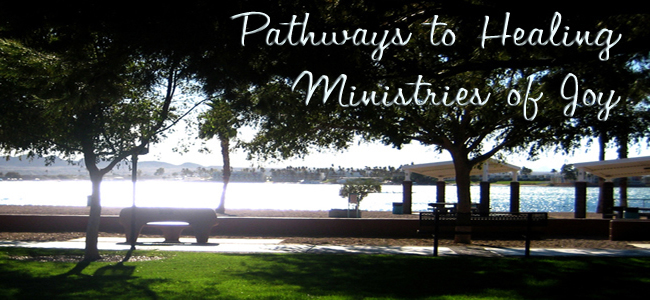
We want extraordinary things to happen in life. Sometimes it just takes a quick story or a joke to give us that chemical change we need. And, “yes” when our emotions move into that sweet range of joy, hope, even surprise (which excites us) our physiology changes.[1]
The other day Bill Gates read one of my website blogs and responded. The surprise of that gave me a lift! My push to get through what was demanding to be done before the end of the day was forgotten while pondering his comment, “Very good feedback. Wondering what you think of its implication on society as a whole, though?”
My first thought was “right!” That’s going to happen! Bill Gates, reading me? Yet, whoever this “Bill Gates” is, this is a person wanting to know my thoughts as regards the world at large. What an honor.
His observation included a reference to “things that can have global expansion, bringing frustration.” He ended with “I’ll be around soon to check out your response.”
Hmmm. Now I’m thinking “maybe Bill Gates,” as my website outreach has become rather wide. (I’m using Google translate, now, to understand messages coming from other countries.)
My follow-up thought was, OK, this guy cares. He might be Bill Gates, or an average guy who invests himself more than most in “what could make a better world.”
Let’s get real. It is not a person’s name that gives him or her value and credibility. It’s not even how much success has come to a person, or how much money is in a bank. Every person on the globe has innate value and deserves to be cared about and respected. Everybody has a story even if it doesn’t rock the world digitally, or shake the boat we tie up by the lake. Based on that truth, I decided to write a blog specific to Bill Gate’s inquiry.
First, I need to decide which direction to go as I covered a lot in the column, titled, “My dream for the New Year,” to which Mr. Gates responded. Was the point “pursuing patience by living in the moment” what he picked up on? Or was it, “valuing elderly folks in our society, listening to their stories?” Yet, could it be my reference to “being content with discovering pleasure in the commonplace?” No, I think this Bill Gates picked up on something from a poem by William Wordsworth, an English poet (1770-1850) that the website blog included:
“I heard a thousand blended notes, while in a grove I sat reclined, in that sweet mood when pleasant thoughts bring sad thoughts to the mind.
“To her fair works did Nature link the human soul that through me ran; and much it grieved my heart to think what man has made of man.”
For sure it is great to enjoy the good things we make happen—to build families, and/or put our talents to work. Still, alongside that we must think also about what we have done to one another—and to our earth that shouts “Let’s revisit this! Let’s make amends.”
In Visions, Trips, and Crowded Rooms, David Kessler wrote, “maturity is when you accept the fact that two contradictory ideas can exist together.” His example was “community service can be a selfless and generous act, or it can be used for self-aggrandizement.”[2]
The most immanent contradiction is that this world is beautiful and “life is great.” And, equally present is a truth that does create frustration (even fear): the entire ecosphere seems to be “going to hell in a handbasket,” given all the shootings and the chaos here at home, as well as around the globe. “Wars and rumors of wars,” is what Scripture prophecies for the “last days.”
How can we maturely work with this?
The answers are in “the Book”—the Bible—for any who will look (and see), ponder and place trust. Two quick examples, Psalms 46:10, “Be still, and know that I am God . . . I will be exalted in the earth!” (Psalms 46:10). And, Colossians 3:2, grants a directive for good mental health, “Set your mind on things above, not on things on the earth . . . . Verse 15 of that passage concludes, “. . . let the peace of God rule in your hearts to which also you were called in one body; and be thankful.”
What God really wants of us is to, “love the Lord your God with all your heart and all your soul and your neighbor as yourself.” This would be the ultimate in maturity. No frustration, here, Mr. Gates, for those advanced enough to see this truth and to live it out.
There is only one possibility in which Jesus’ teachings (which He called “the way”[3]) could bring frustration within society. That can happen when people claim to follow Christ’s teachings, yet fail to let God’s inerrant assurance change their lives. Clearly, it is an individual’s choice. Each can decide whether to follow his or her egocentric behaviors and philosophies allowing these to hold sway, or dedicate oneself to living by God’s Word.
It is this belief in God and the Bible (His Word) that holds the power to change lives and bring the maturity we as human beings so badly need. These tenets, when lived out, serve to powerfully motivate us, creating the actions needed to eliminate what underlies human sufferings: hatred, poverty, tyranny and war (at home and globally.)
Truth be known—meaning if God’s Word is fully lived out—we can have peace on earth and good for all. But, 2nd Peter 3:3-4, does not extend hope for that, saying, “Scoffers will come in the last days, walking according to their own lusts and saying, ‘Where is the promise of His coming?’” Verse 9, assures us, “The Lord is not slack concerning His promise, as some count slackness, but is longsuffering toward us, not willing that any should perish but that all should come to repentance.” The ultimate in peace and good will certainly will be ours when Jesus Christ returns to the earth fulfilling His promise to come a second time. I, for sure, want to be living by His Word (the Bible) and ready for His coming, which is so vividly promised in Scripture.
[1]This truth comes from a field of medicine called psychoneuroimmunology (PNI).
[2]Kessler, David, Visions, Trips, and Crowded Rooms, Hay House, Inc., Kindle version. (New York: NY, 2010, (Kindle version, location #319.)
[3] Jesus called His teachings “the way.” It is not “a religion,” but following “the way” Jesus taught is our response. The American Heritage Dictionary defines “religion” as, “The expression of man’s belief in and reverence for a superhuman power recognized as the creator and governor of the universe.” Most people who say, “I am not religious,” are unclear. They do not have a clear understanding of the word . . . maybe have not taken time to truly think about “religion,” rather would like to not think about their need to show appreciation by saying “thanks” for this life. That is prayer . . . the beginning of a “walk with God.”



Leave A Comment